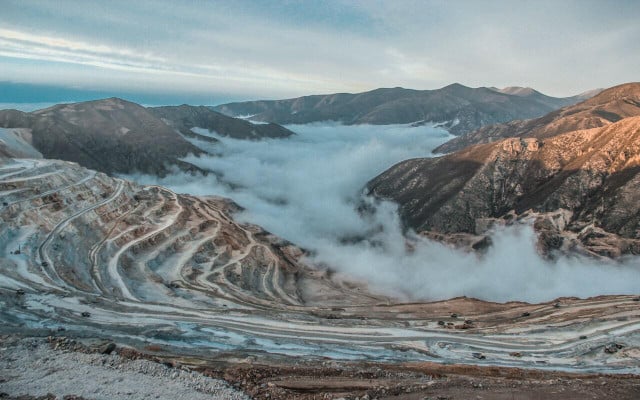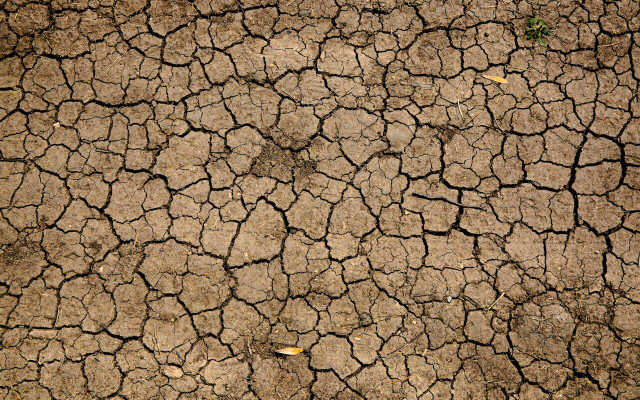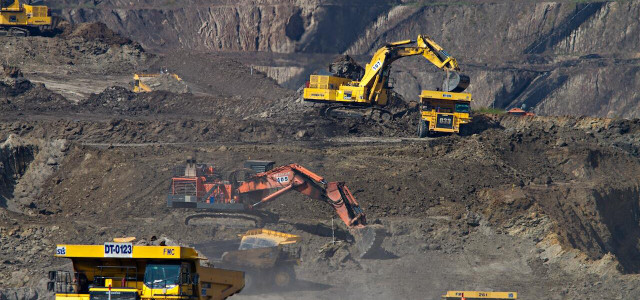Resource depletion is becoming a more commonly used term — and that’s not a good thing. Discover what it is, why it’s dangerous and potential solutions.
Resource depletion occurs when natural resources are consumed faster than they can be replaced. This term is often used in reference to water usage, fishing, farming, mining and fossil fuel consumption. The overconsumption of natural resources leads to environmental degradation and affects the global population.
The concept of resource depletion didn’t arise until the Industrial Revolution, which saw the transition from traditional, handmade and small-scale manufacturing to machine-heavy manufacturing. Machines required energy sources like coal and petroleum to work, and thus resource mining increased.
Since then, the global population has continued to consume both renewable and non-renewable resources in larger quantities than they can be replaced — leading to the current problem of resource depletion.
Resource Depletion Examples

(Foto: CC0 Public Domain / Unsplash /omid roshan)
Nonrenewable resources are depleted whenever used; however, renewable resources can also be depleted. We’ll look at a couple of examples to showcase this issue.
Mining
Mining for fossil fuels and minerals is an excellent example of resource depletion of nonrenewable resources, highlighting the indirect effects of such problematic practices. As more minerals are extracted, the quality of those minerals remaining decreases. Mining also leads to the mismanagement of resources and the appropriation of land. Additionally, mining accounts for significant deforestation, particularly in the Brazillian Amazon.
Water
Water is a finite resource, meaning the Earth’s water is limited. Water is needed to sustain life, yet only three percent of the planet’s surface is freshwater. Wetlands are essential ecosystems facing numerous challenges. They are often seen as wastelands and drained, even though they help filter water and prevent drought. In addition, many causes of water pollution threaten and deplete this invaluable resource.
Causes of Resource Depletion



(Foto: CC0 Public Domain / Unsplash / Mildly Useful)
Resource depletion is a multifaceted issue with multiple causes, including:
- Overpopulation: The global population has reached over eight billion, and an ever-growing population requires more resources to sustain it. An increased population also contributes to ecological contamination. Resource depletion will continue as long as the number of people on the planet keeps rising.
- Overconsumption: The United States is a country known for its overconsumption, but it isn’t the only one. Some estimates say that the current rate of global resource consumption would require one and a half planets’ worth of resources to maintain.
- Poor resource management: There’s no doubt that overpopulation is a major cause of resource depletion, but it isn’t the only one. If these natural resources were managed better, they would not be depleting at such a quick rate. This ranges from fossil fuels and minerals to poor and unsustainable farming practices.
- Pollution: Pollution is a byproduct of unsustainable production and consumption, and it threatens the planet’s life-sustaining resources like water, food, and even air. Human and planetary health are affected by plastic pollution in the ocean and thermal pollution.
- Industrial development: As technological advancements are made across all industries, the risk of technological advances that release toxins and chemical byproducts also increases. These lead to dead zones in the ocean and increased air pollution, among other issues.
Effects of Resource Depletion



(Foto: CC0 Public Domain / Unsplash / Mike Erskine )
The effects of resource depletion are far-reaching, and no region on Earth remains unaffected. Here are some critical problems arising from the overuse of resources:
- Energy crises: Nonrenewable resources, specifically fossil fuels, account for 80 percent of the global energy supply. Research estimates that we have 47 years left of the oil supply based on our current consumption habits. Oil is an essential commodity across numerous industries; oil depletion could cause international conflicts or tensions between countries with the supply and those without.
- Water shortages: An estimated 2 billion people lack access to clean water worldwide due to deforestation and contamination of water sources and groundwater. This further contributes to famine and food insecurity. Diseases like diarrhea, cholera and typhoid fever are other direct causes.
- Loss of forest cover: The planet has lost a lot of forest cover as a result of clearing land for farming and using wood as a resource. This is a problem, as deforestation contributes to greenhouse gases, soil erosion, increased flooding and drought, and is a major threat to biodiversity.
- Extinction of species: Overexploitation of resources and habitat degradation are huge threats to wildlife. Habitat destruction is the leading reason species get listed as endangered species.
- Economic instability: The amount of minerals needed to sustain the population has increased. The cost of these resources increases with demand, meaning that as natural resources become scarce, energy, fuel and food costs rise. The economic impact of mineral depletion is considered to be greater than or equal to the impact of global warming because global poverty levels are already steadily increasing. Natural resources contribute to the real wealth of nations, and countries without access to these resources must pay a premium to access them — while countries that possess them continue to profit.
Potential Solutions to Overuse of Resources
There is no quick fix for resource depletion, but scientists are investigating potential solutions to slow the problem. Possible solutions include encouraging countries to reduce oil, mineral and material consumption, explore and use renewable energy sources, control deforestation, and protect wetlands and other coastal ecosystems like coral reefs. On an individual level, we can each further others’ awareness of the problem and encourage our friends and family to become conscious consumers, take action and restore the natural environment.
Read more:
- Biomass Fuels: Pros and Cons
- Compressed Natural Gas: Is CNG Sustainable?
- Greenpeace vs. Shell: Why Protestors Boarded This Oil Platform
Do you like this post?








